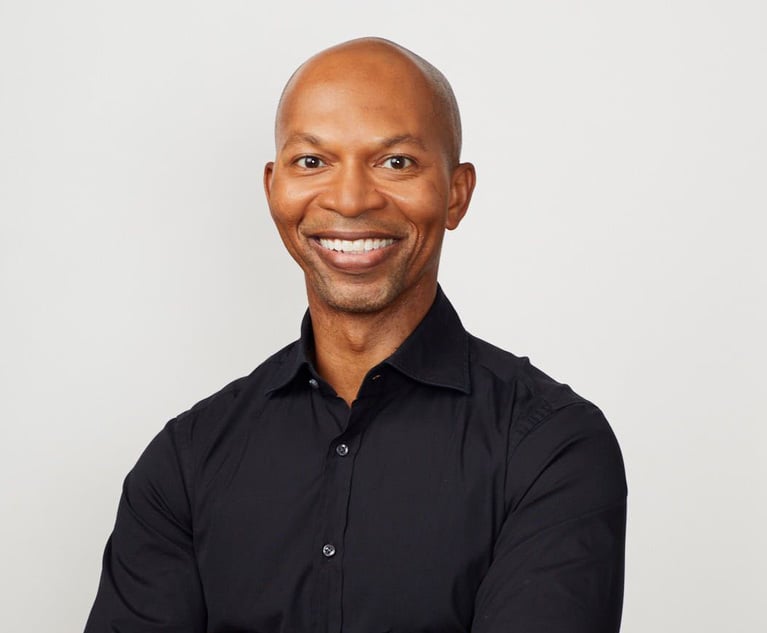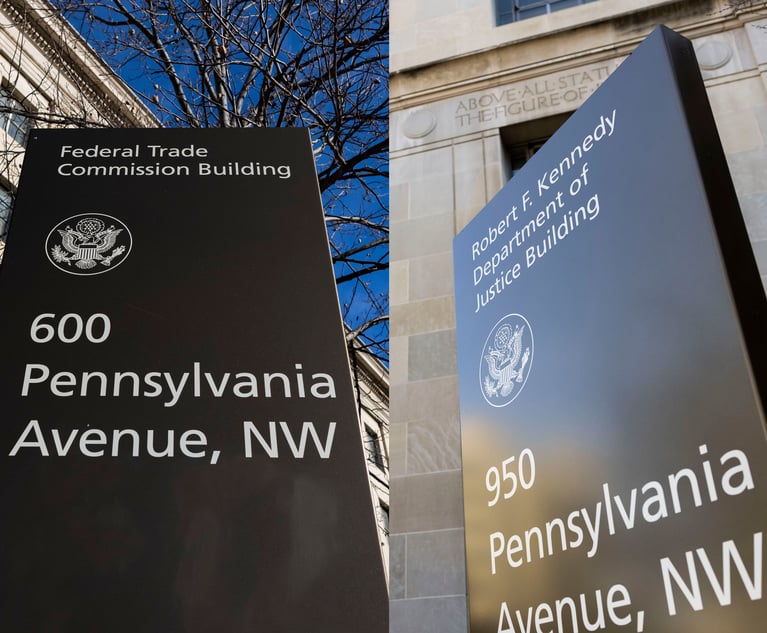Why You May Not Be Getting 'Fair Value' With Discounted Legal Rate
In 2010, William Poundstone wrote a book on pricing called Priceless: The Myth of Fair Value (and How to Take Advantage of It). Poundstone lays out…
June 20, 2017 at 08:27 AM
6 minute read
The original version of this story was published on Law.com
In 2010, William Poundstone wrote a book on pricing called Priceless: The Myth of Fair Value (and How to Take Advantage of It). Poundstone lays out the psychological foundation of pricing and uses it to evaluate different pricing decisions we make. For instance, if you look at a menu, the different ways the restaurant organizes the items may impact our decision about what we order—everything from the description of the entrees, to the location of the pricing, to the use of images. The book shows us that when it comes to paying “fair value,” we are all suckers.
One of the significant concepts the book explores is “anchoring.” The concept, covered extensively by psychologists Amos Tversky and 2002 Nobel Prize winner Daniel Kahneman, is fairly straightforward. Anchoring is a bias that we have in relying on one piece of information in making a decision. For example, before you buy a new car, you may go online and build the car you want, and the website generates an estimated price based on your selection. When you go to the dealership, the car salesman may offer to sell you the car for say, 5-10% less than the build estimate/MSRP. The discounted price will seem like a great deal because you set your expectations based on the build estimate, or the “anchor” price. Poundstone applies this concept to all sorts of different pricing models. For instance, why an expensive item on a menu may make others items seem like a value by comparison. Poundstone's book is a fascinating read and will force you to rethink fair value and pricing.
It got us thinking about the pricing for legal services. Most law firms charge billable hour rates. Law firms usually base these rates on individual lawyers using the years of experience, market, type of work, etc. And they seem to creep up every year. Just like associate salaries. This poses a problem for law firms because how do you show the client they are getting “fair value” when they have to pay some percentage more for the same work every year? At the same time they read about new lawyer salaries creeping upward. Which lawyers receive the rate increases? And why? As firms seek to become more profitable to retain top partners (who have top clients), how does the firm keep the client from feeling like they are the one footing the bill (or at least, that they are still paying fair value)?
This content has been archived. It is available through our partners, LexisNexis® and Bloomberg Law.
To view this content, please continue to their sites.
Not a Lexis Subscriber?
Subscribe Now
Not a Bloomberg Law Subscriber?
Subscribe Now
NOT FOR REPRINT
© 2024 ALM Global, LLC, All Rights Reserved. Request academic re-use from www.copyright.com. All other uses, submit a request to [email protected]. For more information visit Asset & Logo Licensing.
You Might Like
View All
SoundCloud GC Takes Legal Reins of Condé Nast at Tumultuous Time

Senate Panel Postpones Vote on Reconfirmation of Democrat Crenshaw to SEC

As AI-Generated Fraud Rises, Financial Companies Face a Long Cybersecurity Battle

FTC, DOJ Withdrawal of Antitrust Guidelines for Collaboration Infuriates Republicans
5 minute readTrending Stories
- 1A Look Back at the Biggest Legal Industry Shifts in 2024
- 2Ben Brafman's Professional Legacy After 50 Years? Himself
- 3Ruling Provides Lessons for Investors: Mind Your Business (Affairs)!
- 4With SDNY Stay Lifted, Sex Trafficking Civil Suit Against Vince McMahon, WWE Gets Green Light
- 5Insurer Has No Duty to Defend 'Laidlow' Claims, NJ Supreme Court Says
Who Got The Work
Michael G. Bongiorno, Andrew Scott Dulberg and Elizabeth E. Driscoll from Wilmer Cutler Pickering Hale and Dorr have stepped in to represent Symbotic Inc., an A.I.-enabled technology platform that focuses on increasing supply chain efficiency, and other defendants in a pending shareholder derivative lawsuit. The case, filed Oct. 2 in Massachusetts District Court by the Brown Law Firm on behalf of Stephen Austen, accuses certain officers and directors of misleading investors in regard to Symbotic's potential for margin growth by failing to disclose that the company was not equipped to timely deploy its systems or manage expenses through project delays. The case, assigned to U.S. District Judge Nathaniel M. Gorton, is 1:24-cv-12522, Austen v. Cohen et al.
Who Got The Work
Edmund Polubinski and Marie Killmond of Davis Polk & Wardwell have entered appearances for data platform software development company MongoDB and other defendants in a pending shareholder derivative lawsuit. The action, filed Oct. 7 in New York Southern District Court by the Brown Law Firm, accuses the company's directors and/or officers of falsely expressing confidence in the company’s restructuring of its sales incentive plan and downplaying the severity of decreases in its upfront commitments. The case is 1:24-cv-07594, Roy v. Ittycheria et al.
Who Got The Work
Amy O. Bruchs and Kurt F. Ellison of Michael Best & Friedrich have entered appearances for Epic Systems Corp. in a pending employment discrimination lawsuit. The suit was filed Sept. 7 in Wisconsin Western District Court by Levine Eisberner LLC and Siri & Glimstad on behalf of a project manager who claims that he was wrongfully terminated after applying for a religious exemption to the defendant's COVID-19 vaccine mandate. The case, assigned to U.S. Magistrate Judge Anita Marie Boor, is 3:24-cv-00630, Secker, Nathan v. Epic Systems Corporation.
Who Got The Work
David X. Sullivan, Thomas J. Finn and Gregory A. Hall from McCarter & English have entered appearances for Sunrun Installation Services in a pending civil rights lawsuit. The complaint was filed Sept. 4 in Connecticut District Court by attorney Robert M. Berke on behalf of former employee George Edward Steins, who was arrested and charged with employing an unregistered home improvement salesperson. The complaint alleges that had Sunrun informed the Connecticut Department of Consumer Protection that the plaintiff's employment had ended in 2017 and that he no longer held Sunrun's home improvement contractor license, he would not have been hit with charges, which were dismissed in May 2024. The case, assigned to U.S. District Judge Jeffrey A. Meyer, is 3:24-cv-01423, Steins v. Sunrun, Inc. et al.
Who Got The Work
Greenberg Traurig shareholder Joshua L. Raskin has entered an appearance for boohoo.com UK Ltd. in a pending patent infringement lawsuit. The suit, filed Sept. 3 in Texas Eastern District Court by Rozier Hardt McDonough on behalf of Alto Dynamics, asserts five patents related to an online shopping platform. The case, assigned to U.S. District Judge Rodney Gilstrap, is 2:24-cv-00719, Alto Dynamics, LLC v. boohoo.com UK Limited.
Featured Firms
Law Offices of Gary Martin Hays & Associates, P.C.
(470) 294-1674
Law Offices of Mark E. Salomone
(857) 444-6468
Smith & Hassler
(713) 739-1250






